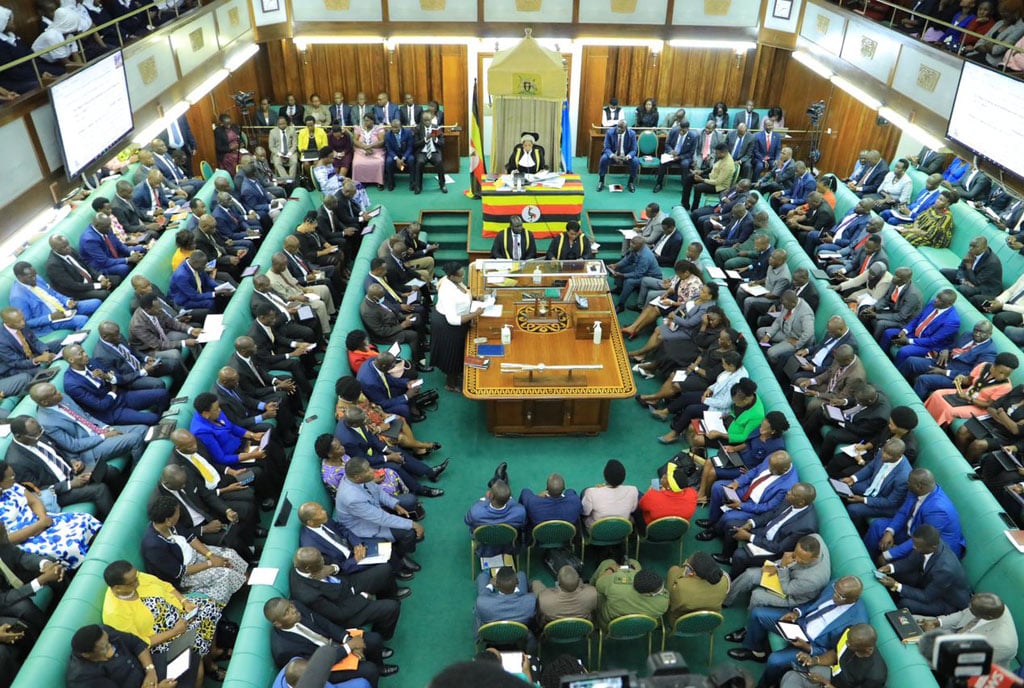Prime
That, there, is the empty feeling of the morning after the night before

Author: Daniel K Kalinaki. PHOTO/FILE.
What you need to know:
- MPs have shown that in just three weeks they can write and pass a law to regulate what happens in the night.
- Now, can they do the same for laws we need to improve the day-to-day extreme sport of living in Uganda?
On Tuesday night, Parliament passed the Anti Homosexuality Bill, including a last-minute amendment that introduced the death penalty for the offence of aggravated homosexuality.
The passing was wholly expected because few topics are as emotive or draw as much bi-partisan support in this country. It isn’t hard to see why. A public discussion on the optimal size of the public debt triggers hard breathing and sweaty palms among many, legislators inclusive. One on whether inflation-targeting monetary policy is preferable to an expansionist one that favours wage growth would trigger seizures and mass hysteria in the House.
But a discussion on square pegs in round holes is low-hanging fruit, and accessible to anyone. MPs who haven’t put in a word in months suddenly have a chance to raise their contribution goal-difference. In a country full of sin, it is also one of the few platforms on which any iron-sheet thief, murderer or wife-beater, whether in Parliament or outside it, can stand and, with some degree of genuine legitimacy, virtue-signal.
It is also performative. The President will probably assent to the law, it will be challenged and therefore held in abeyance, until the courts find all or parts of it to be unconstitutional and therefore unlawful. Then the circle will be repeated, in this or the next Parliament. In Uganda, homophobia is the gift that keeps on giving, especially when the streets are restless and need some distraction.
But that is beside the point. Democracy is the tyranny of the majority, and MPs have a right to be wrong. In fact, it is even somewhat gratifying to see MPs put aside their political differences and vote across party lines, even if it is for the wrong thing.
What should interest and worry us is our policy-making and legislative processes, for these determine the flawed outcomes. The fore-going debate reveals at least three problematic issues.
The first is the quality of the arguments, or rather the lack thereof. Most of our public discourse is simplistic and binary – you either support this position or the other – yet the world, and most of its challenges, is grey and complicated. It should, for instance, be possible for one to be opposed to the promotion of homosexuality, while at the same time defend the rights of those who identify that way. For that to happen arguments must be supported by evidence, not emotion.
Secondly, public discourse – especially the variety that feeds into legislation and public policy – should be intentional about listening to and considering alternative views. But our record here is appalling. Open-air talk shows were shut down, public spaces have been cordoned off and NGOs have been defenestrated and stymied of funding. A Stasi-like security force has been set up to police the physical and digital town squares and hunt down individuals who use public or even personal spaces and devices to say things that those in power do not like to hear, or just don’t like. To this end, homophobia is merely a tree in a fast-growing forest of fascist authoritarianism.
The final issue is the easiest to see but hardest to explain. Legislative processes and public policy making should, one supposes, be guided by pragmatism and dutiful consideration of what is urgent and important for a country and its citizens.
Forget the iron sheets, the NSSF money heist, or any of the other weekly episodes of our political drama. On Wednesday morning we woke up to the same country with a young, poorly skilled population caught between unemployment and low wages, groaning under rising costs of living and an ever-expanding chasm of inequality.
We drove 20-year-old cars on potholed streets into unplanned towns with poor quality air, took our kids to schools preparing them for the 20th century, and inserted ourselves, as we do every day, into an exploitative consumerist enclave economy that produces what it consumes and consumes what it does not produce.
We might have gone to bed on a legislative high but as we rifled through our pockets looking for change and trying to make sense of it all, we were filled with the emptiness of the morning after the night before. MPs have shown that in just three weeks they can write and pass a law to regulate what happens in the night.
Now, can they do the same for laws we need to improve the day-to-day extreme sport of living in Uganda?
Daniel Kalinaki is a journalist and poor man’s freedom fighter.
[email protected]; @Kalinaki




